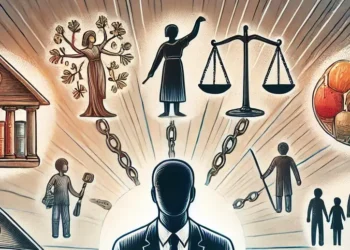Table of Contents
- What is Modernity?
- The Sociological Significance of Modernity
- Globalization: A Product of Modernity
- The Tensions of Modernity
- Conclusion: The Enduring Legacy of Modernity
Modernity is a concept deeply embedded in the sociological understanding of societal transformation. It represents a break from traditional modes of social organization, thought, and action, replacing them with new values, institutions, and ideologies that reflect the changing dynamics of a rapidly evolving world. This article will explore the ethos of modernity, examining its significance from a sociological perspective, the key features of modern societies, and how modernity shapes individuals and social institutions.
What is Modernity?
Modernity can be understood as the period in human history marked by the rise of industrialization, urbanization, rationalization, and the development of the nation-state. This transition from pre-modern, largely agrarian societies to modern, industrialized ones brought about profound changes in the way people lived, thought, and interacted with one another. It is often associated with the Enlightenment, a period in the 17th and 18th centuries when reason and scientific thinking began to take precedence over religious dogma and superstition.
Key Features of Modernity
Several core characteristics define the ethos of modernity. These include:
- Individualism: Modernity emphasizes the role of the individual as an autonomous, rational agent. In contrast to pre-modern societies, where collective identities often took precedence, modernity fosters the idea of self-determination and personal responsibility.
- Rationalization: The process of rationalization, as explained by sociologists like Max Weber, is central to modernity. It involves the application of reason and logic to social organization, leading to the rise of bureaucracies, standardized systems, and efficiency-driven institutions.
- Secularization: Modernity often coincides with the decline of religious authority and the separation of religious institutions from political power. Secularization refers to the shift from a society dominated by religious values to one guided by secular, often scientific, reasoning.
- Urbanization and Industrialization: As societies modernize, they become more urban and industrialized. This shift changes the social fabric, as people move from rural areas to cities in search of work and new opportunities, leading to the development of modern urban life.
These features collectively shape the ethos of modernity, influencing both social structures and individual behaviors.
The Sociological Significance of Modernity
From a sociological perspective, modernity is not just a historical period but a framework for understanding the profound changes that shape contemporary societies. The ethos of modernity affects how individuals view themselves, their relationships with others, and the institutions around them. It introduces new forms of social organization, reconfigures power dynamics, and fosters the development of social theories that seek to explain the changes within modern societies.
Individualism and Social Identity
One of the most significant aspects of modernity is its focus on individualism. In modern societies, individuals are encouraged to define their own identities, separate from traditional roles assigned by family, religion, or community. This process of individualization can lead to increased personal freedom and autonomy, but it also brings challenges such as social isolation and identity confusion.
Modern sociological thought reflects this tension. For example, Émile Durkheim emphasized the concept of anomie—a state of normlessness that can occur when individuals are disconnected from the traditional values and social bonds that once provided structure and meaning. As individuals strive for personal autonomy, they may also struggle with feelings of alienation or disconnection from the broader social order.
Rationalization and Bureaucracy
Modernity’s emphasis on rationalization has a profound effect on the structure of institutions. Max Weber’s theory of rationalization highlights how modern societies prioritize efficiency, predictability, and control. This rationalization is most evident in the rise of bureaucratic institutions, where formal rules, procedures, and hierarchies dominate.
While rationalization can bring about greater organizational efficiency, it also has its drawbacks. Weber warned of the potential for a “disenchantment of the world,” where the focus on rationality and efficiency strips life of its meaning, leaving individuals trapped in an “iron cage” of bureaucracy. In this way, modernity can both empower and constrain individuals by creating systems that prioritize order over human spontaneity and creativity.








